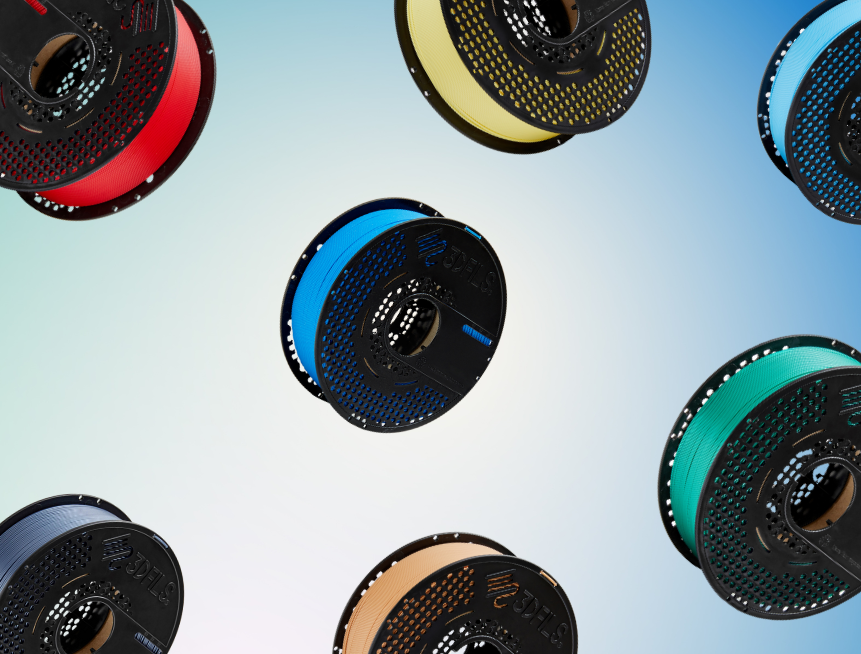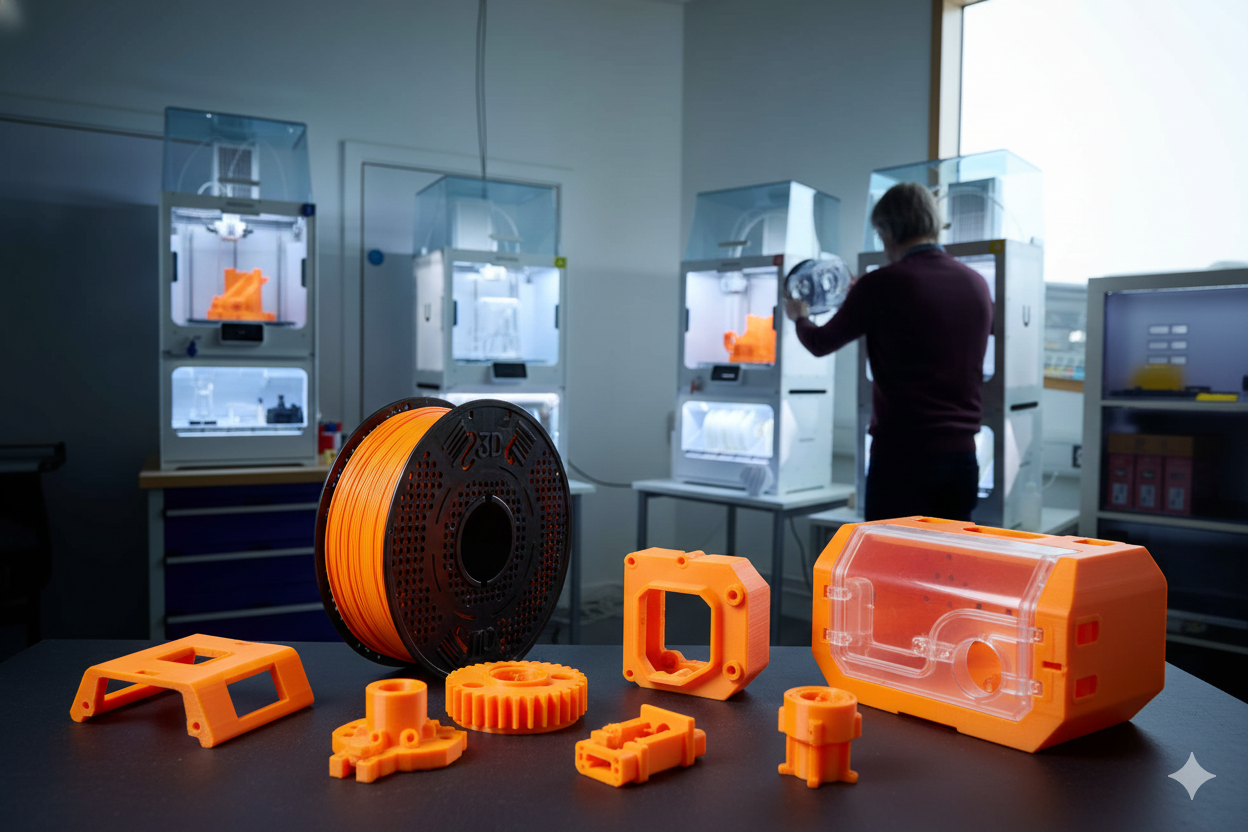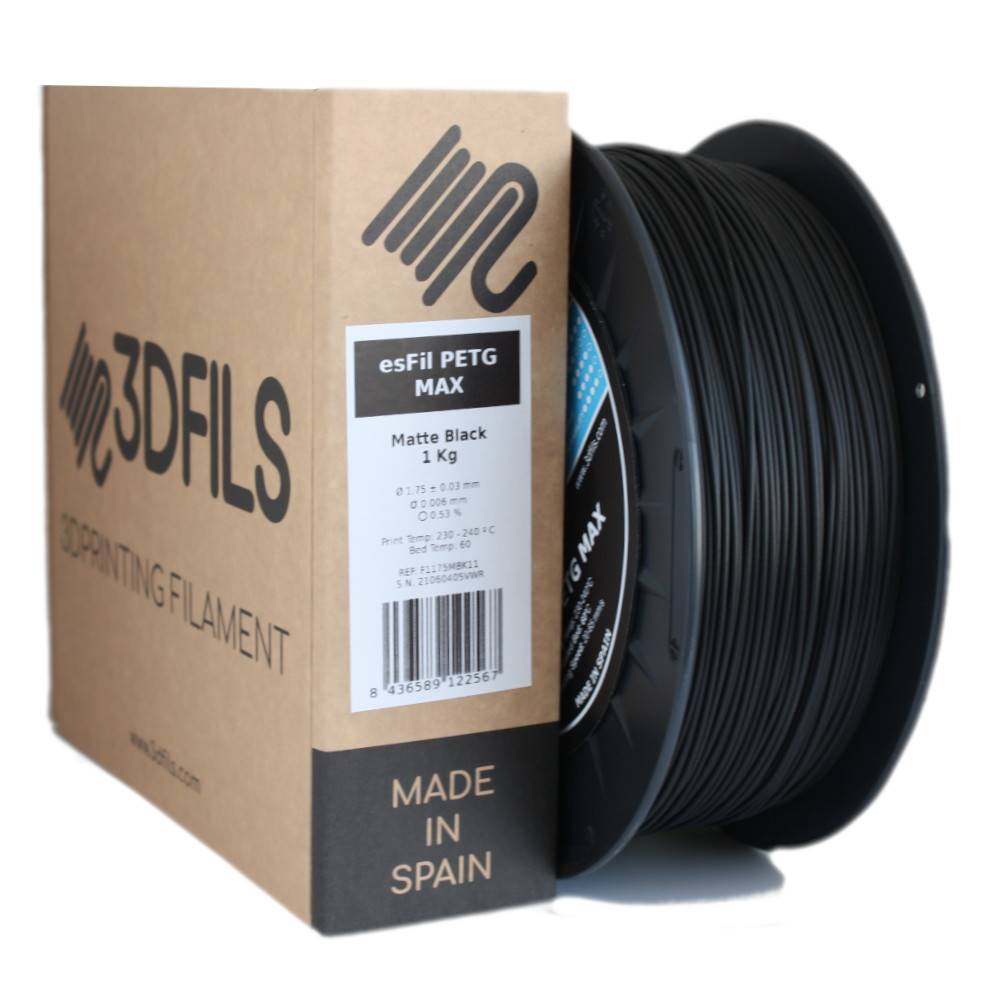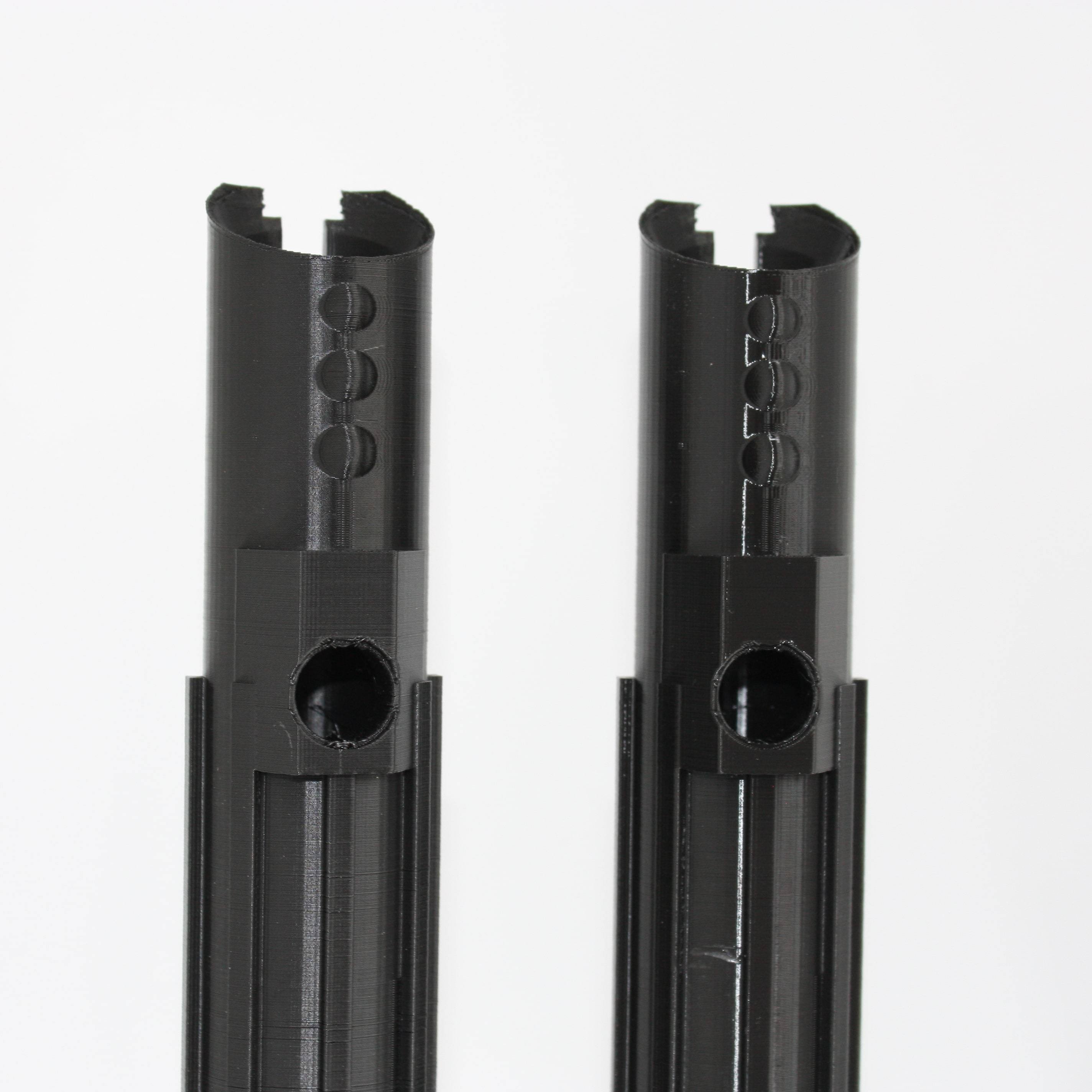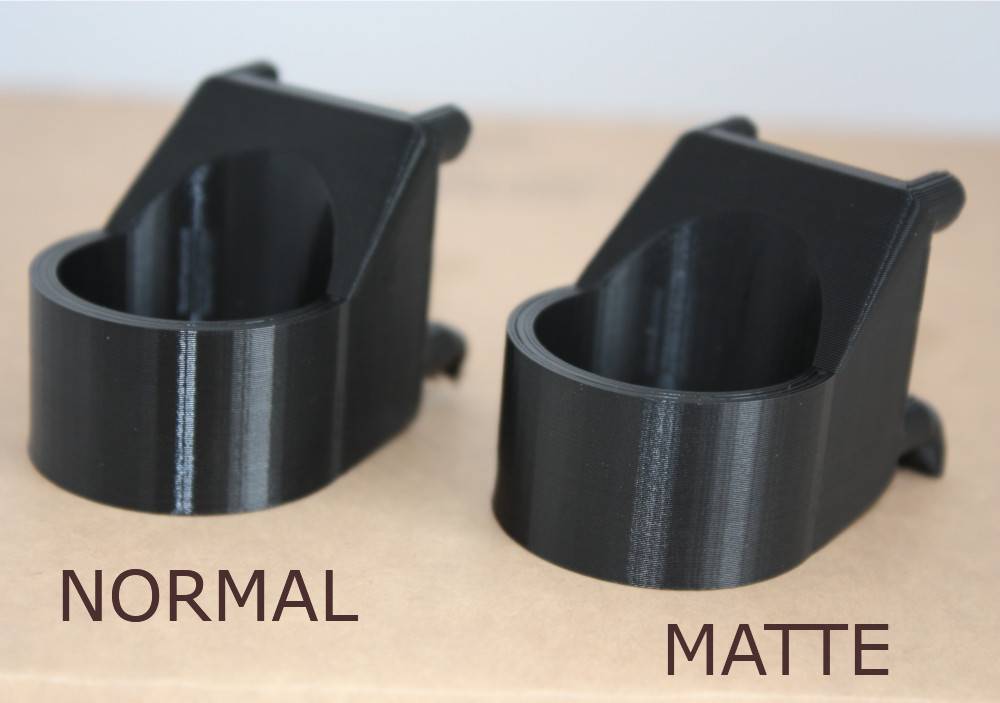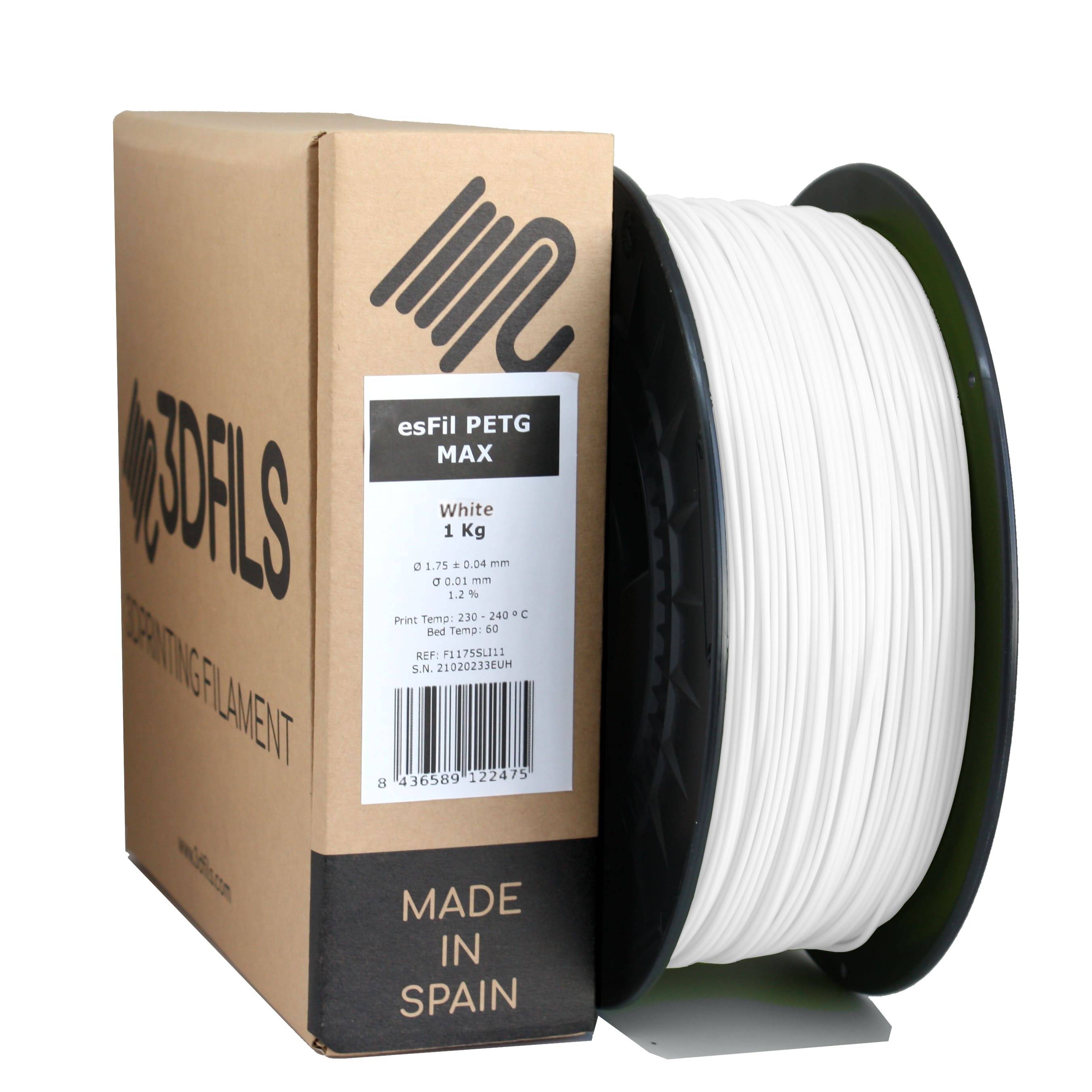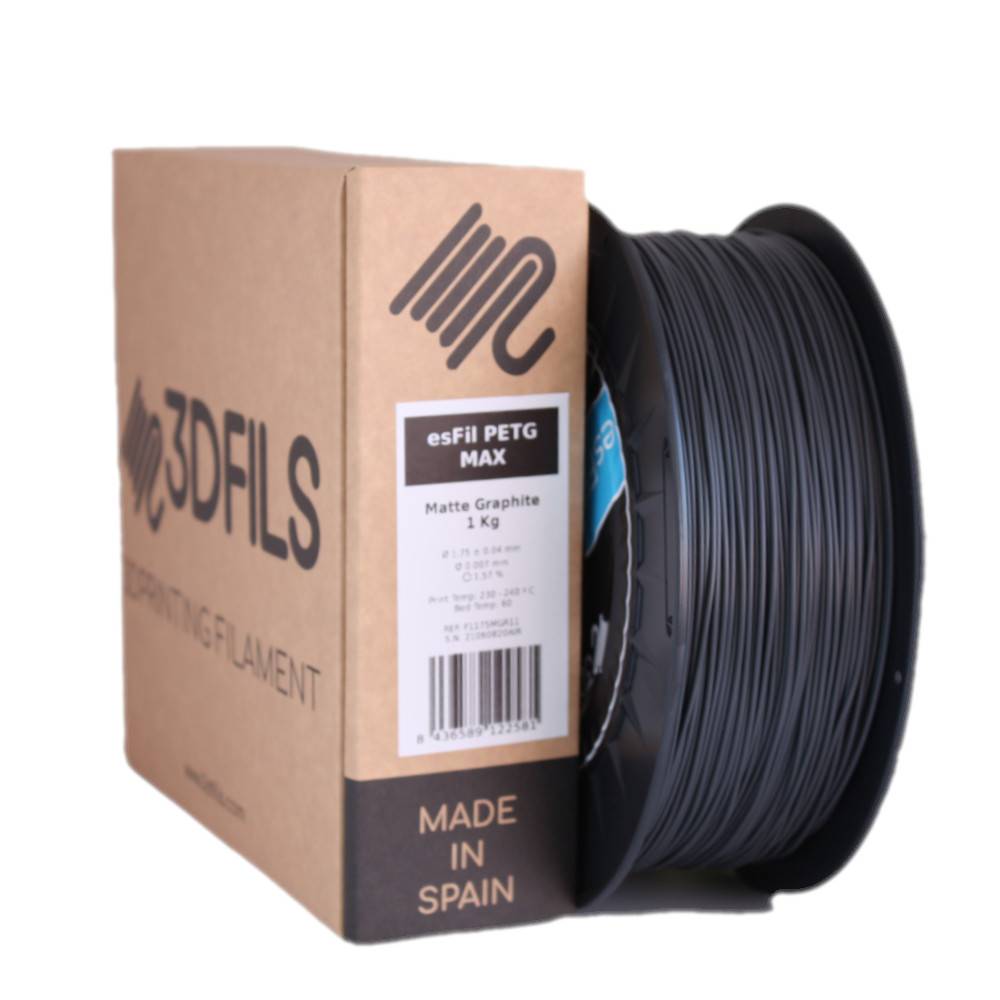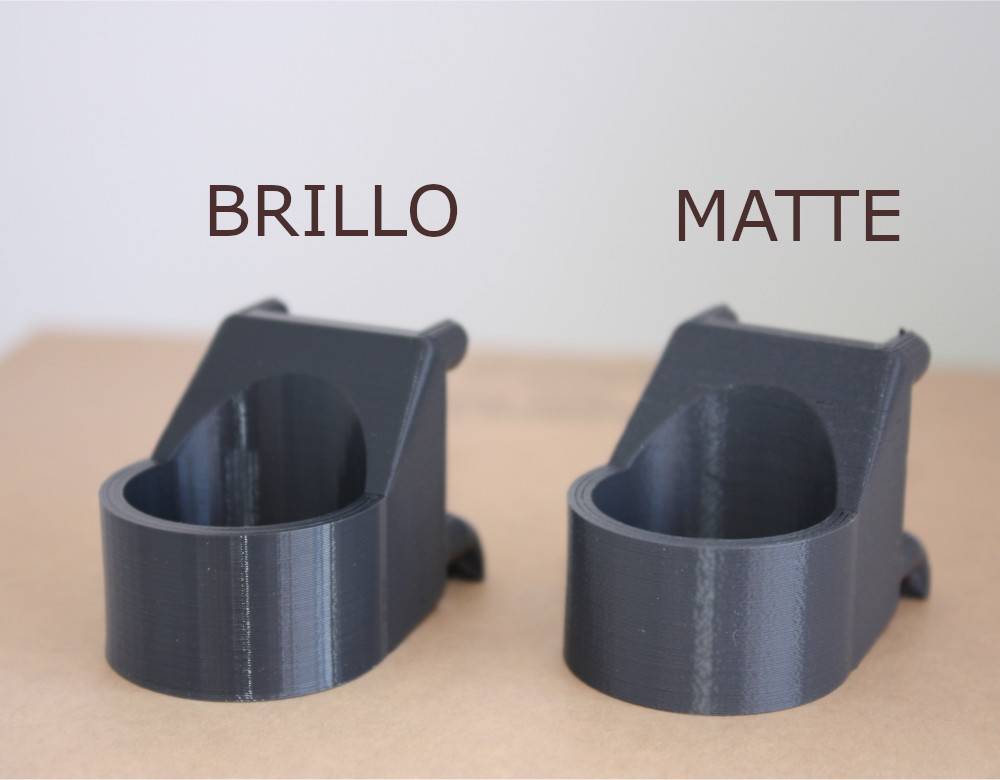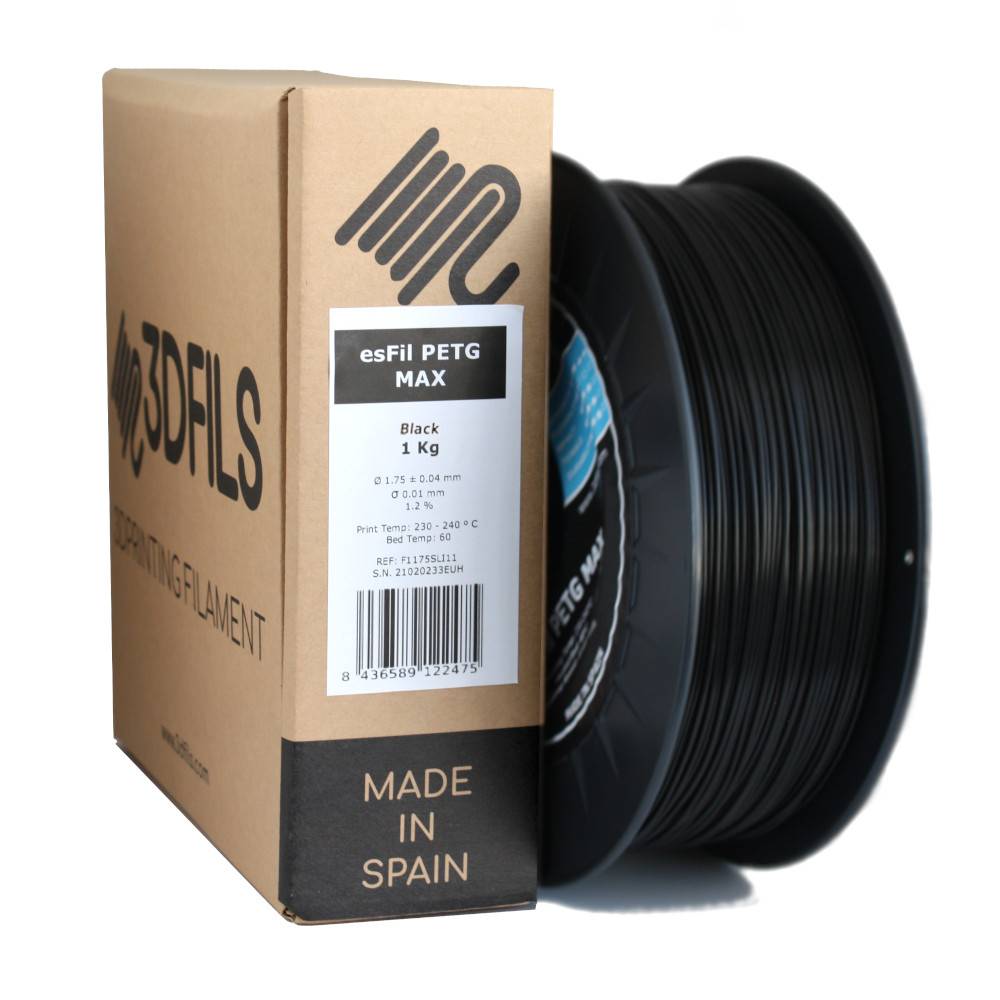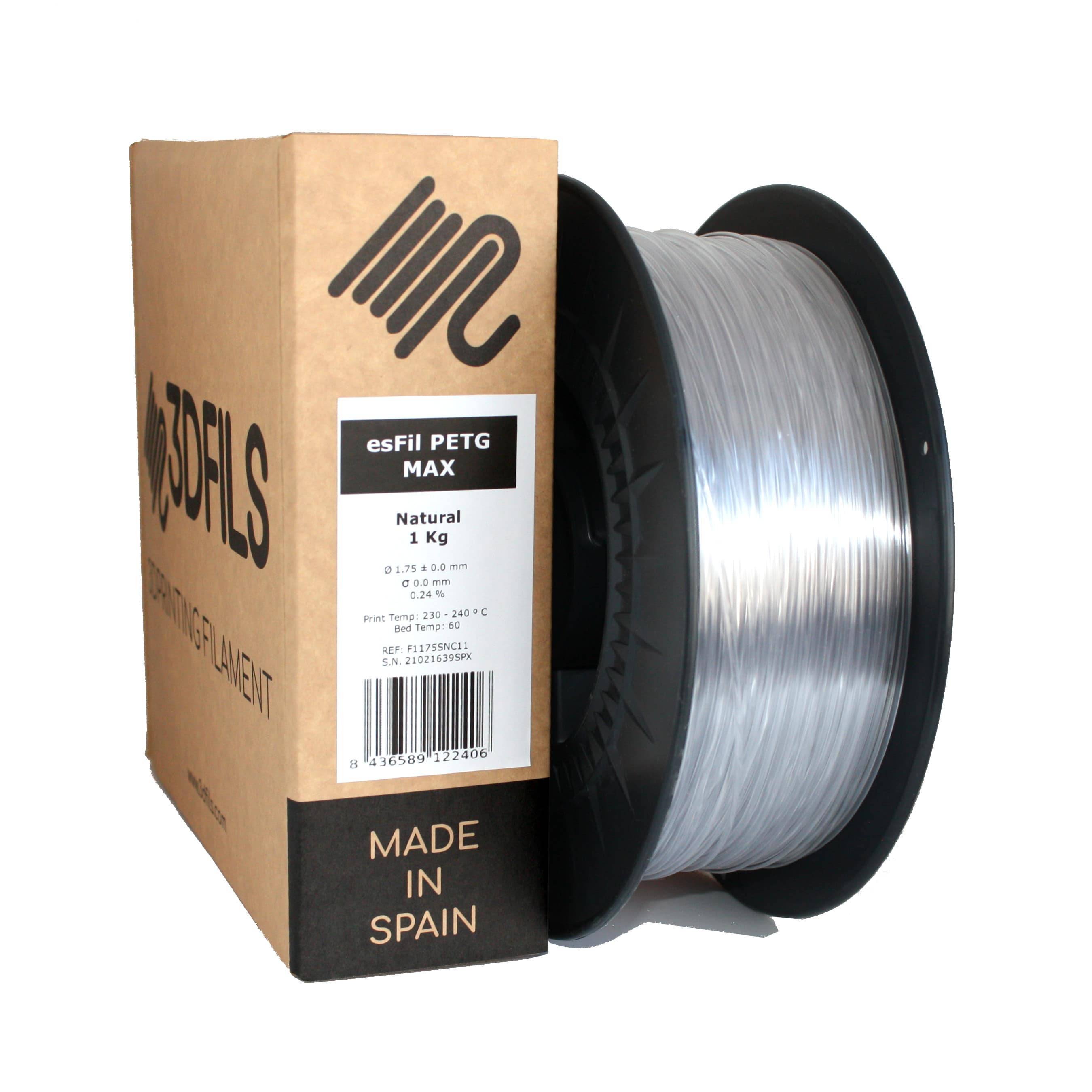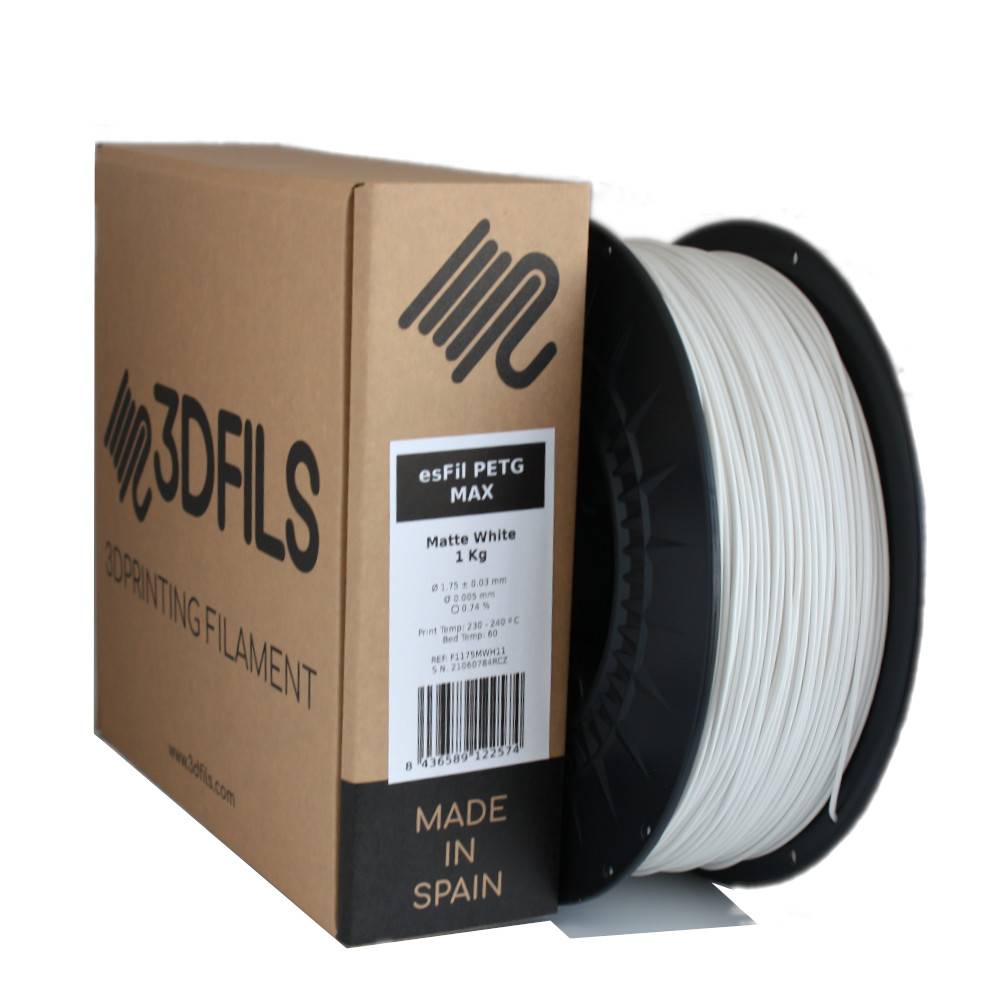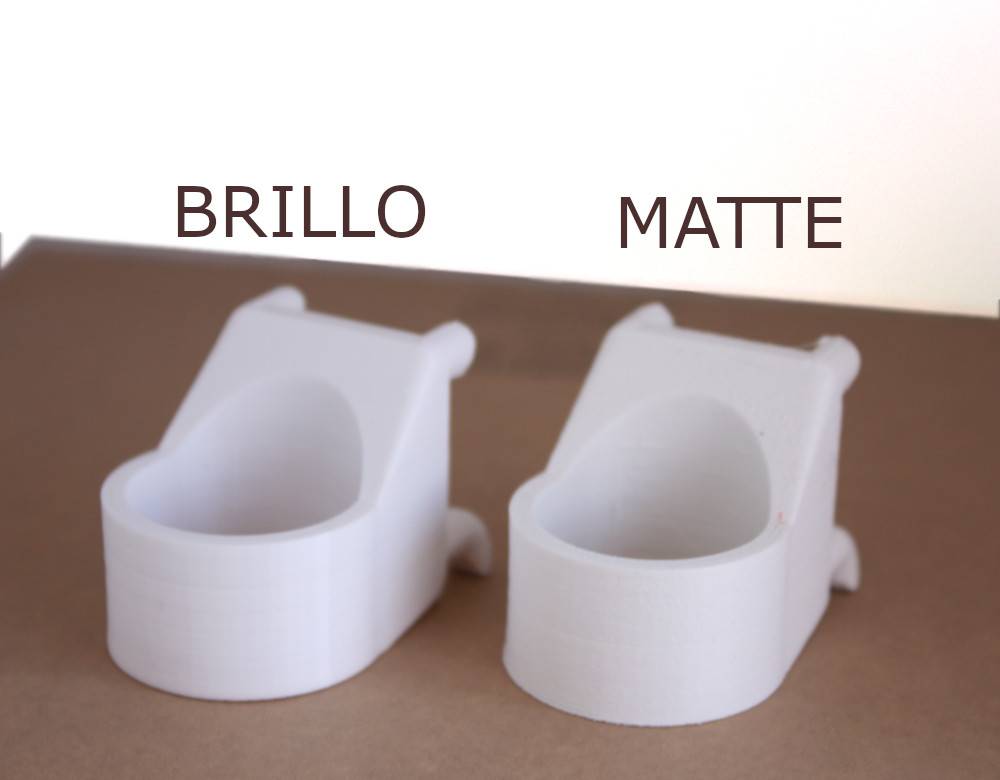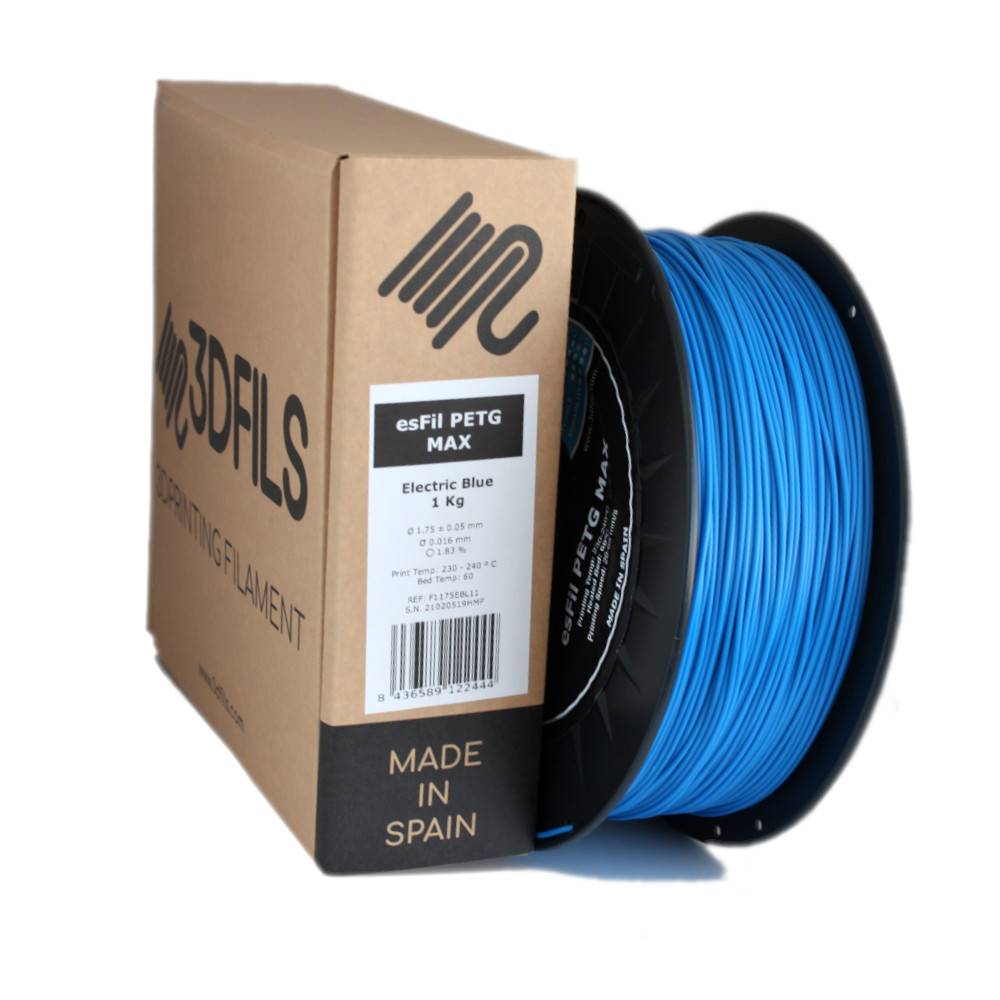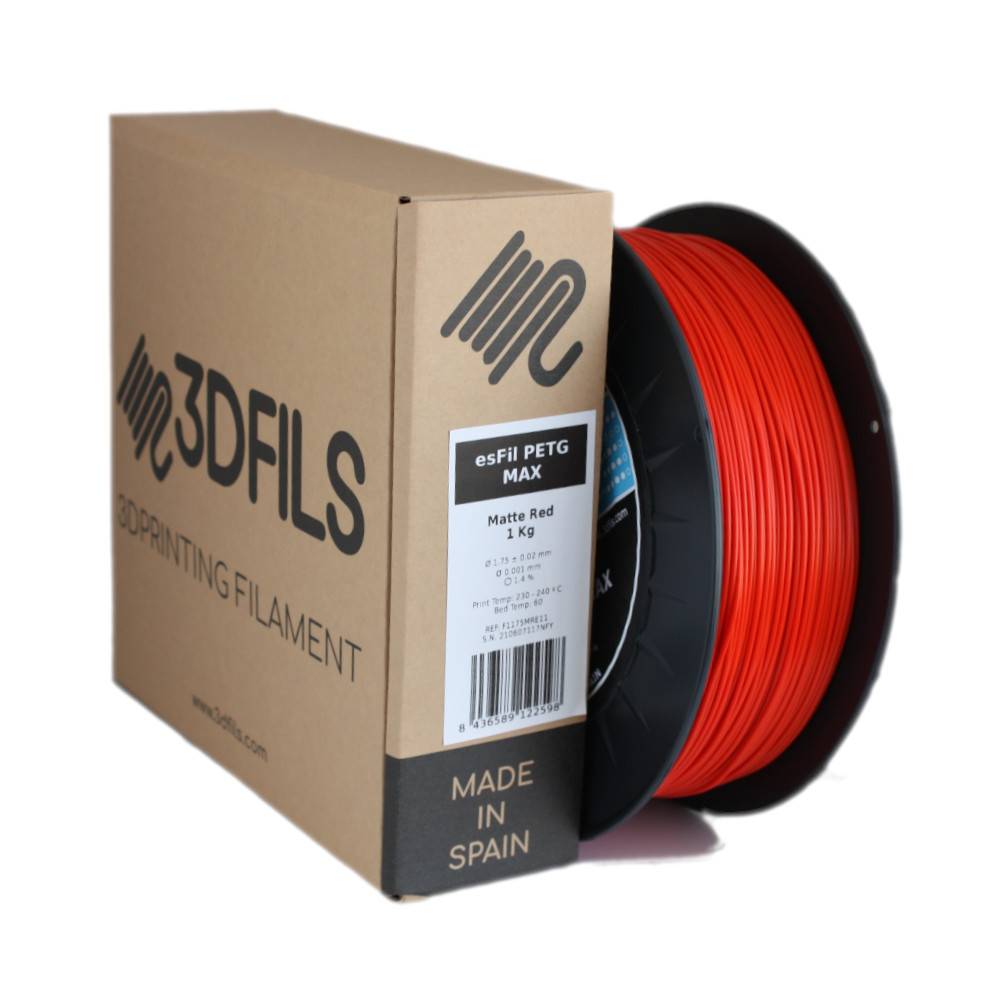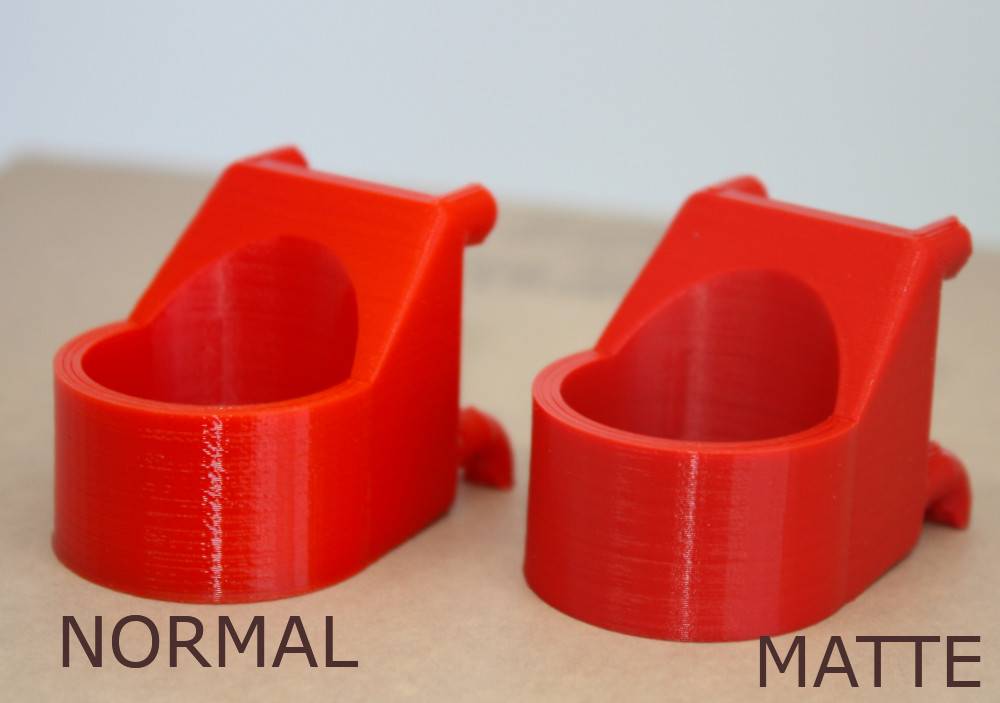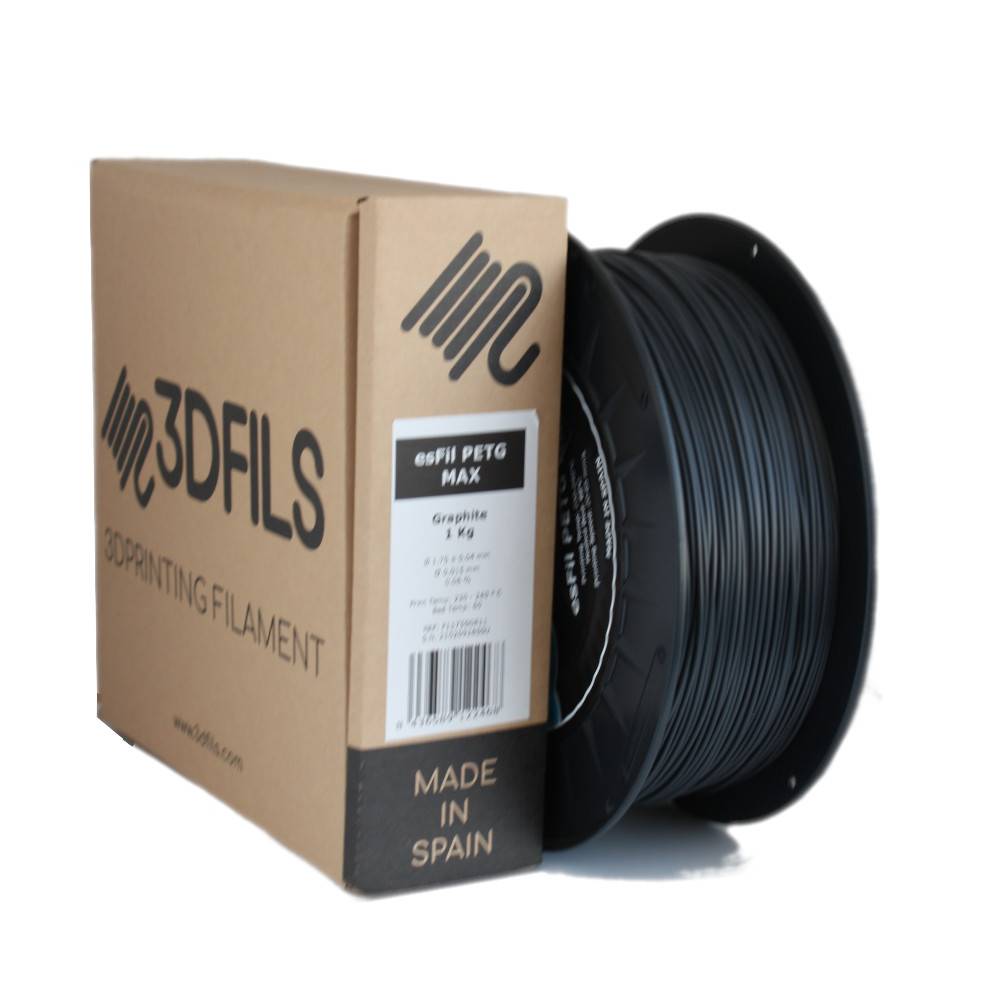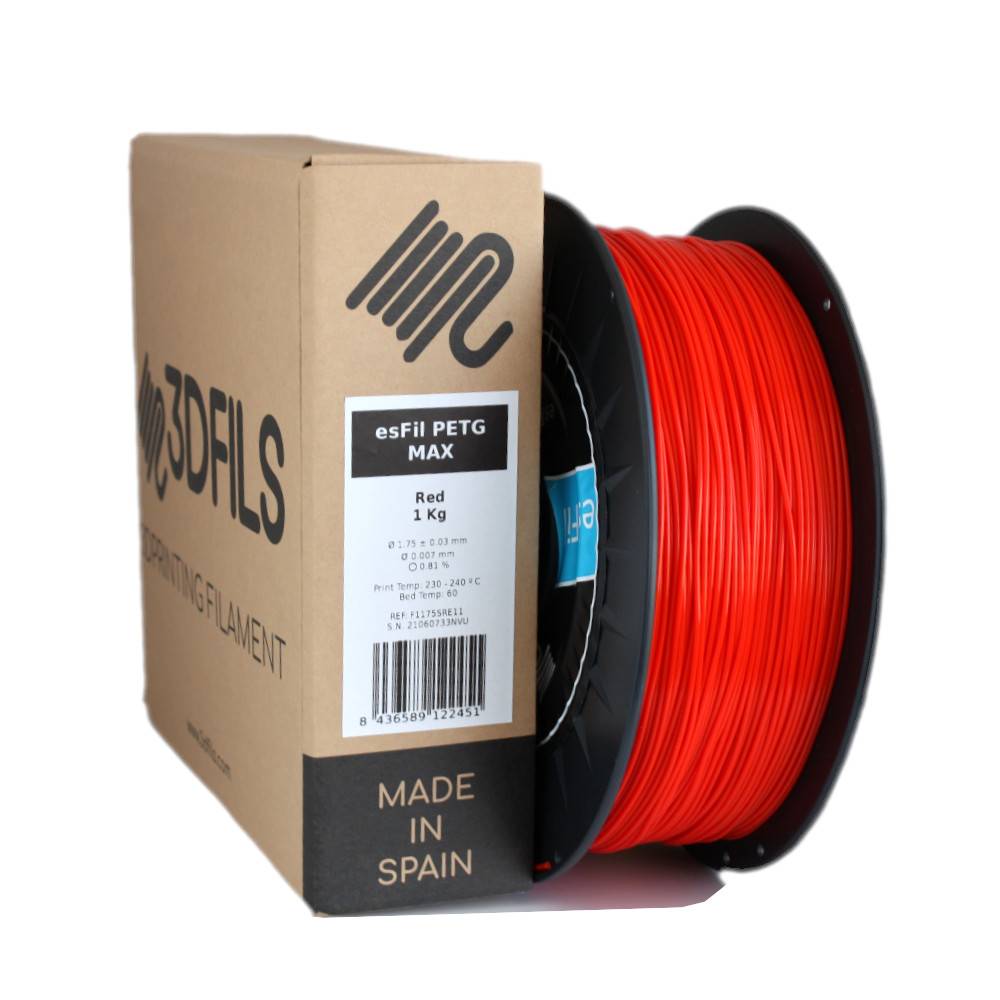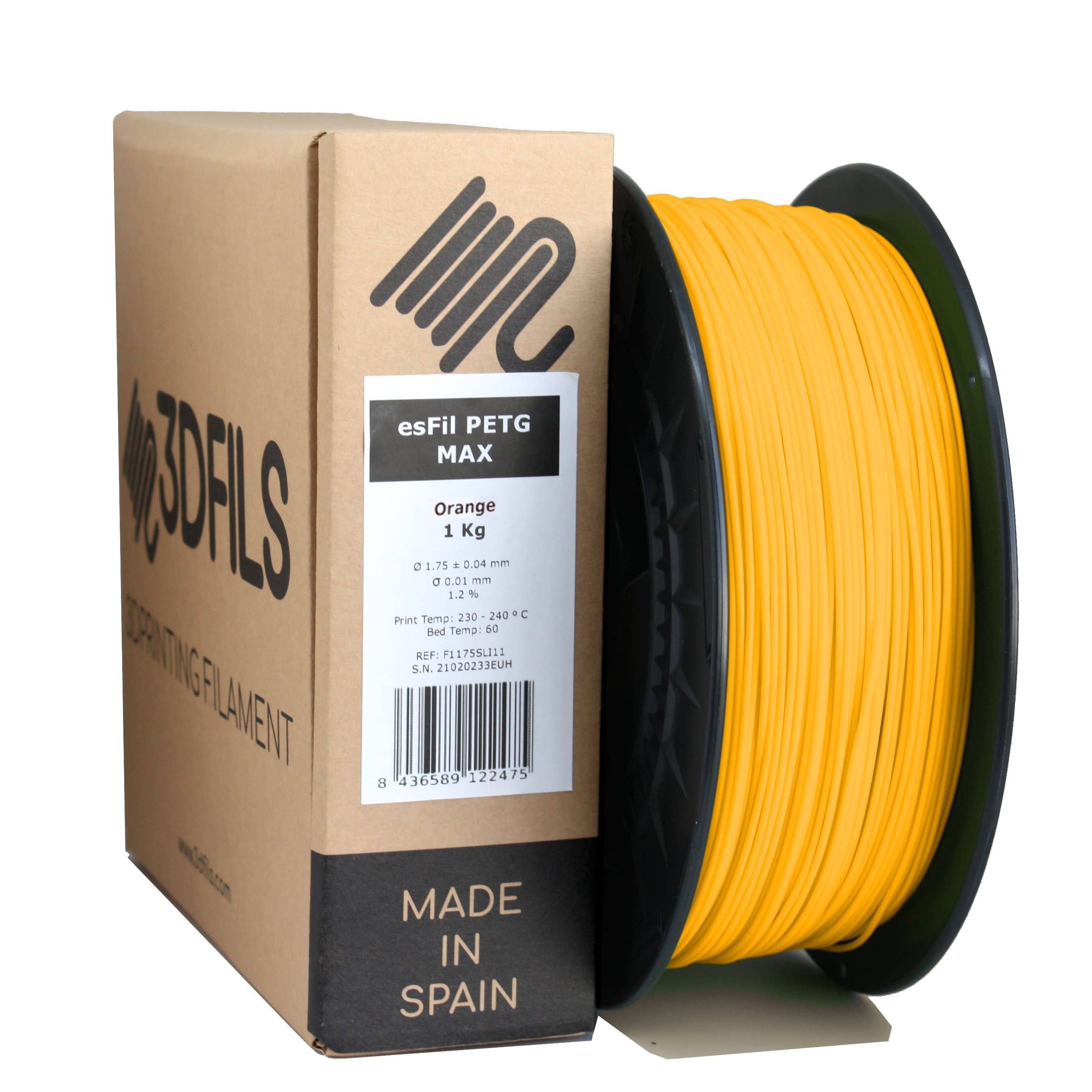Quality PETG filament for 3D printers
What is PETG filament?
PETG (Polyethylene Terephthalate Glycol) filament is a versatile and durable thermoplastic that has become a popular choice for 3D printing due to its excellent properties. It is an amorphous material, meaning it lacks a defined crystalline structure, giving it excellent flexibility and impact resistance. It is characterized by:
PETG filament applications:
- Functional parts:PETG is ideal for printing functional parts that require mechanical and temperature resistance, such as electronics housings, tools, drone parts, etc.
- Prototyping:PETG can be used to create rapid and economical prototypes of parts and designs that need to be durable.
- Printing everyday objects:It can be used to print a wide range of everyday objects such as glasses, plates, toys, etc.
- Industrial applications:PETG is used in various industrial applications, such as the manufacture of prosthetics, molds, and automotive parts.
Applications of PETG filament
- Functional parts:PETG is ideal for printing functional parts that require mechanical and temperature resistance, such as electronics housings, tools, drone parts, etc.
- Prototyping:PETG can be used to create rapid and economical prototypes of parts and designs that need to be durable.
- Printing everyday objects:It can be used to print a wide range of everyday objects such as glasses, plates, toys, etc.
- Industrial applications:PETG is used in various industrial applications, such as the manufacture of prosthetics, molds, and automotive parts.
Advantages of PETG filament
- Mechanical resistance:PETG is a strong and durable material with high tensile and flexural strength.
- Temperature resistance:PETG has a high printing temperature and can withstand temperatures up to 80°C without warping.
- Chemical resistance:PETG is resistant to a wide range of chemicals, including water, oils, and acids.
- Easy to use:PETG prints easily on most FDM 3D printers and does not require a heated bed.
- Good adhesion between layers:PETG has good interlayer adhesion, producing high-quality prints.
- Transparent:PETG is available in a variety of colors, including clear, making it ideal for printing objects that need to be transparent.
Printing recommendations for PETG filament
- Uses a 0.4mm or 0.6mm nozzle.
- Prints at a speed of 40-80 mm/s.
- Adjust the printing temperature between 220-250 °C.
- Heated bed at a temperature of 60-80 °C to improve adhesion.
- Uses a 4-6mm retraction setting.
- Make sure the filament is dry before printing.
- Print in an enclosed area to avoid drafts.
Properties of PETG filament
- Density:1.27 g/cm³
- Printing temperature:220-250 °C
- Heated bed temperature:50-60 °C
- Retraction:4-6 mm
- Print speed:40-100 mm/s
- Modulus of elasticity:2.5 GPa
- Tensile strength:50-70 MPa
- Flexural strength:80-90 MPa
- Elongation at break:5-7%
- Melting point:250 - 260 °C


